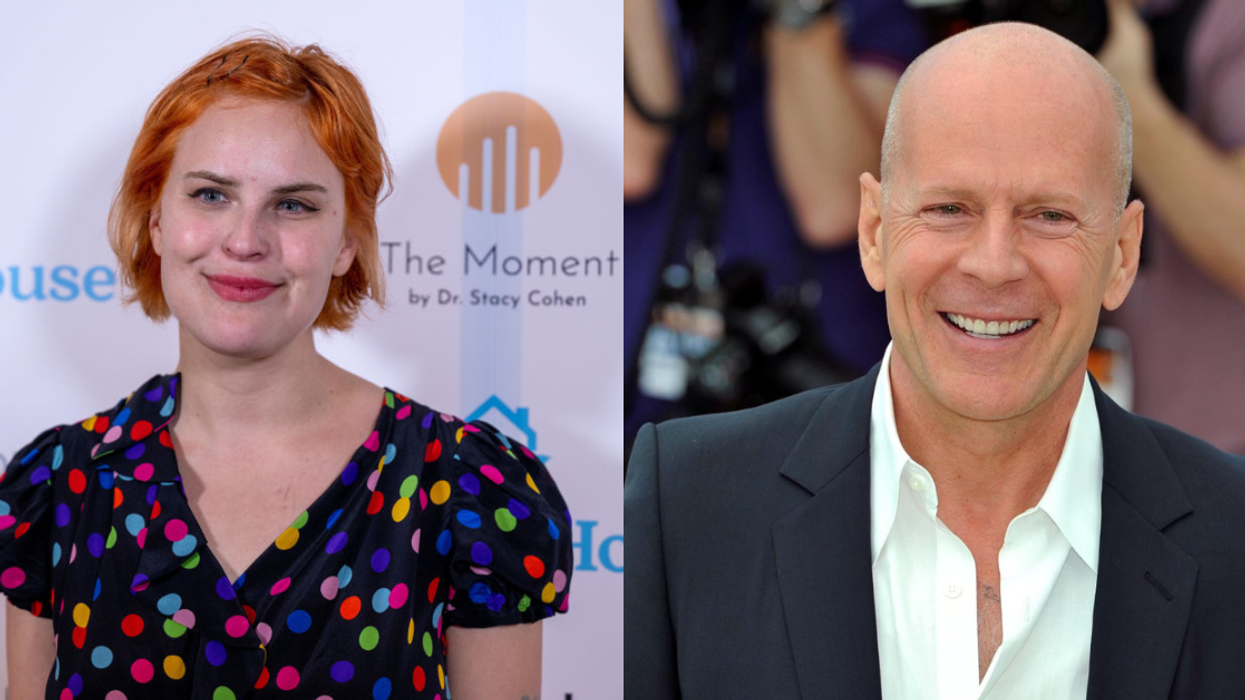Tallulah Belle Willis, the daughter of actors Bruce Willis and Demi Moore, responded after she was called out on Instagram for posting photos of her father as he battles frontotemporal dementia (FTD), stressing that she knows her father's life and work has made a mark on his legions of fans.
In one photo, the 70-year-old retired action star—best known for his role in Die Hard—is pictured smiling in a chair, holding hands with his youngest daughter, who sits cross-legged on the floor beside him. Another image captures a warm moment between the two as she wraps him in a heartfelt hug.
She captioned it:
"Sunday funday at Grams! Grateful."
You can see her post below.
But one fan didn't take kindly to Tallulah Willis' decision to post the photos, suggesting she was violating her father's dignity and privacy:
"I don’t think you should expose your dad to the public! He is vulnerable! And some things should be kept private! You don’t have his permission to post it!”
You can see their exchange below.

But Tallulah Willis later responded graciously to defend her move, writing:
"Hi. I hear that. As a family we use our discretion when posting. Today was a great day filled with smiles. I made the judgment call to show that to the world, because I know what he means to everyone.”
Many have come to Tallulah Willis' defense.
In 2023, the Willis family announced that Bruce Willis was diagnosed with FTD.
Willis was initially diagnosed with aphasia, a language disorder that disrupts a person's ability to communicate. The actor's wife, Emma Heming Willis, said that "Bruce always believed in using his voice in the world to help others, and to raise awareness about important issues both publicly and privately."
While Heming Willis noted that "it is a relief to finally have a clear diagnosis" and that the family knows Willis would "want to respond by bringing global attention and a connectedness with those who are also dealing with this debilitating disease and how it impacts so many individuals and their families."
FTD is the most common form of dementia among people under 60, though it can also strike individuals in their 60s, 70s, or older. Unlike Alzheimer’s, which is primarily associated with memory loss, FTD more often alters personality, behavior, language, and motor skills—reflecting damage to the brain’s frontal and temporal lobes.
There is currently no cure or approved treatment for FTD. Life expectancy following diagnosis typically ranges from 7 to 13 years.














 @DuncanCecil/X
@DuncanCecil/X @@realDonaldTrump/Truth Social
@@realDonaldTrump/Truth Social @89toothdoc/X
@89toothdoc/X @xray_media/X
@xray_media/X @CHRISTI12512382/X
@CHRISTI12512382/X
 @sza/Instagram
@sza/Instagram @laylanelli/Instagram
@laylanelli/Instagram @itssharisma/Instagram
@itssharisma/Instagram @k8ydid99/Instagram
@k8ydid99/Instagram @8thhousepath/Instagram
@8thhousepath/Instagram @solflwers/Instagram
@solflwers/Instagram @msrosemarienyc/Instagram
@msrosemarienyc/Instagram @afropuff1/Instagram
@afropuff1/Instagram @jamelahjaye/Instagram
@jamelahjaye/Instagram @razmatazmazzz/Instagram
@razmatazmazzz/Instagram @sinead_catherine_/Instagram
@sinead_catherine_/Instagram @popscxii/Instagram
@popscxii/Instagram
